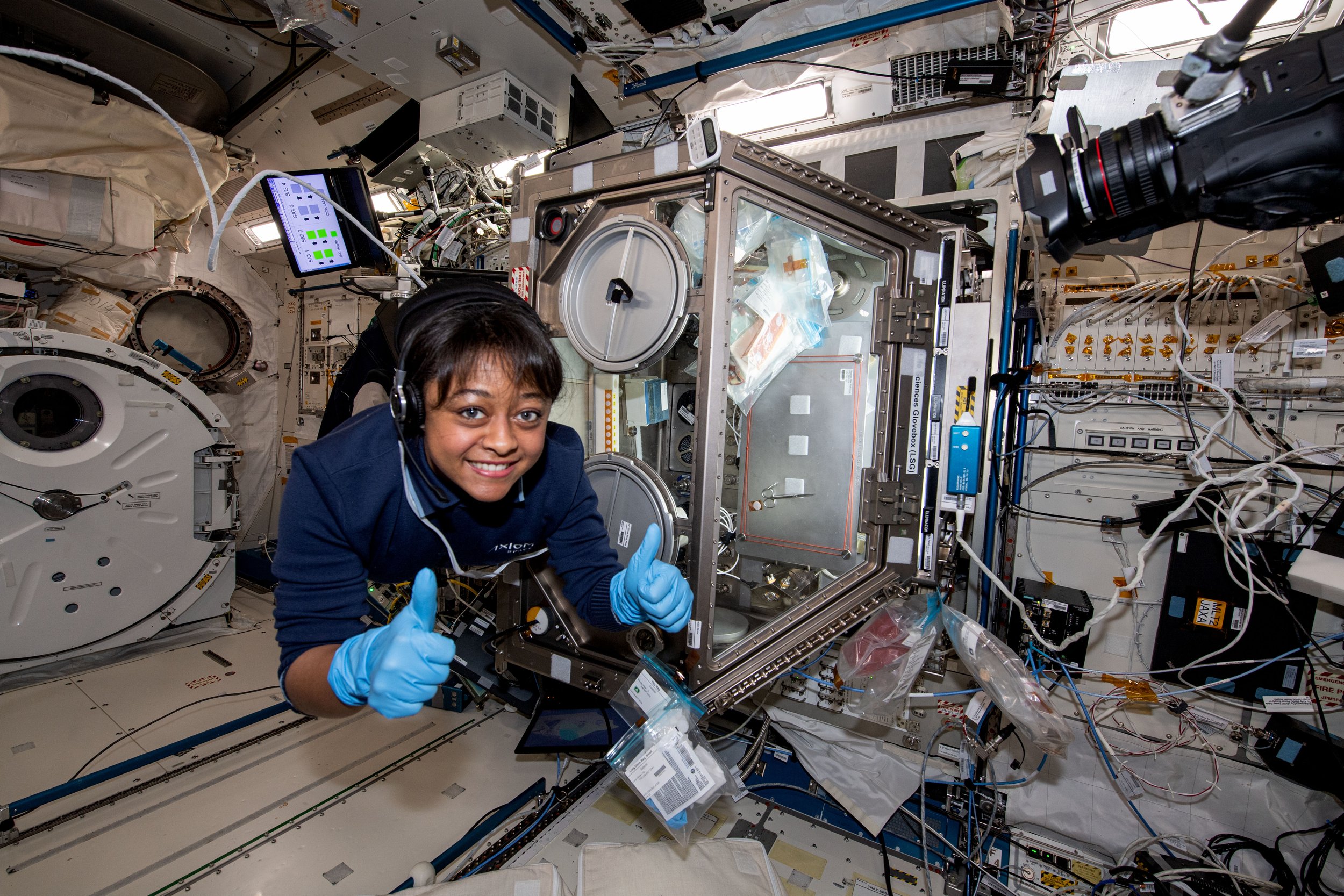Ax-2 Mission Specialist Rayyanah Barnawi spent four consecutive days working in the life science glovebox on the ISS in support of the mRNA experiment.
During Axiom Mission 2 (Ax-2), the crew investigated the inflammatory response of human immune cells in microgravity, specifically the changes in mRNA decay – a process that regulates gene expression changes in cells and can influence the effects of inflammation. The goal of the mRNA Response and Stability in Microgravity & Consequences for Inflammation Research and Biotechnology (RNA Response) investigation was to study the changes of mRNA half-life in microgravity and subsequent consequences on inflammatory response. Results could provide insight into whether microgravity changes the mechanism that turns off inflammation, contributing to a better understanding of the inflammatory response in space and helping to maintain astronaut health on future missions.
In this experiment, a type of white blood cells were sent to the International Space Station (ISS) and, in parallel with experiments on the ground, cells were treated with a substance that stimulates an inflammatory response. The changes in mRNA expression and decay were studied and compared between experimental conditions to learn about mRNA expression changes, which could uncover biomarkers or potential therapies for inflammatory diseases both in space and on Earth.
BioServe Space Technologies provided support in experimental design, experiment protocol definition, hardware development and integration, crew training, safety, and manifestation. BioServe also supported the on-orbit operations real-time, assisting crew in successfully completing the experiment.
In addition to the RNA Response experiment, BioServe provided significant support for the implementation of other important studies during the Ax-2 mission, which included Space Tissue and Regeneration (STAR) and Stellar Stem Cells.
BioServe was honored to play an integral role in the overall success of the Ax-2 science mission payloads and to participate in building history with Axiom Space on the In Space Production Applications (InSPA) manufacturing payloads STAR and Stellar Stem Cells. For more information on the BioServe and the team please visit https://www.colorado.edu/center/bioserve/ .
The mRNA response experiment was in collaboration with King Faisal Specialist Hospital & Research Center and funded by the Saudi Space Agency.
Axiom Space Chief Scientist Lucie Low interviewed Dr. Khalid S. A. Khabar, director of the Molecular BioMedicine Program at King Faisal Specialist Hospital and Research Center (KFSHRC) in Saudi Arabia.

